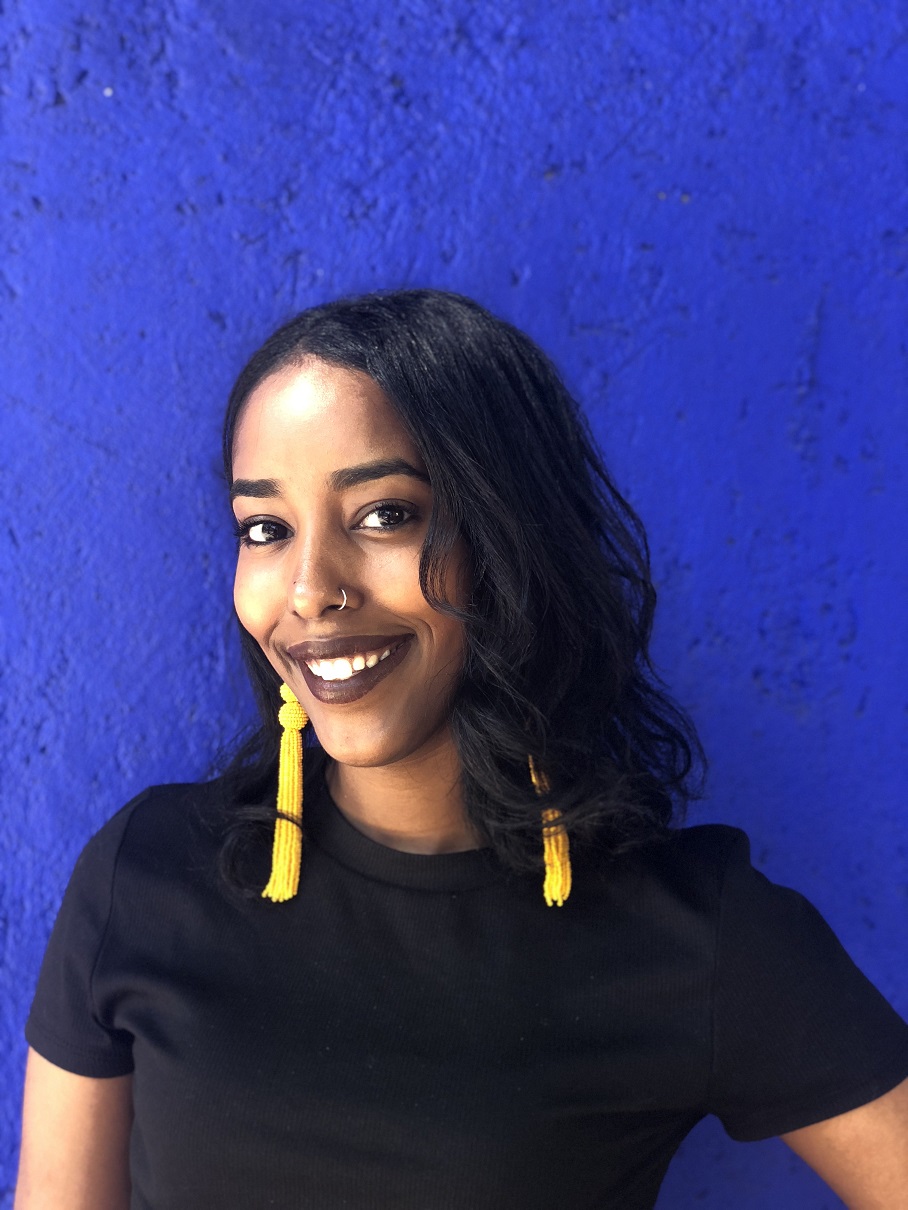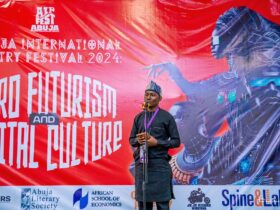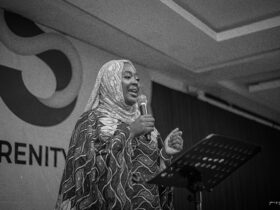Konya Shamsrumi: What is the process of writing a poem like for you? Is it a lot of hard work or easy?
Jamila Osman: I find that the process is completely dependent on what the poem demands. Some poems come to me in one quick spurt of inspiration and vision, and some poems start as a chunk of stone that I need to chip away at for days, weeks, months, and sometimes even years before discovering what the poem came to tell and teach me. But the most important part of my process is everything I do before I sit down to write a poem. The quality of the poems I write depends on the quality of my living. I find I need to be deeply engaged with the world and my people, to feel emotionally and spiritually alive, to be able to write anything meaningful to me or anyone else. And living well in a world that colludes against life is hard work. And that is what makes writing poems hard—not the writing itself but the conditions I am trying to write within.
Konya Shamsrumi: Please describe your sense of identity in this or any possible world in imagery or metaphor?
Jamila Osman: Oh, this is an interesting task. I don’t know if I’ve ever thought of myself in imagery or metaphor.
- A beehive. An intricate and enclosed thing within a larger thing.
- Not the moon, not the tide, but the force between the two.
- A thick braid.
- A plume of smoke.
- An unexpected burst of rain, no lighting or thunder.
Konya Shamsrumi: If any of your poems could literarily save a person’s life, which poem would it be and can you describe the person whose life you think it would have saved?
Jamila Osman: This is a tough question. I don’t want to be presumptuous. I don’t know if I have a poem that can save a person’s life. I will say that I do have poems that are a testament to my own survival, poems that show that there is a way to endure even that which feels unendurable, that there is language even for that which feels beyond language. I myself have been saved numerous times by the audacity of other people’s survival. And maybe there is a poem I have already written (or will one day write) that can be both witness and testimony for someone in need of a similar audacity.

Konya Shamsrumi: What does Africa mean to you, as potential or reality?
Jamila Osman: Revolution. Resistance. The beautiful struggle. The just struggle. A home beyond the limits and myths of geography. An unmappable, uncontainable, spilling place.
Konya Shamsrumi: Could you share with us one poem you’ve been most impressed or fascinated by? Tell us why and share favorite lines from it.
Jamila Osman: I’m currently reading Some Girls Walk Into the Country They Are From by Sawako Nakayasu which is a brilliant and strange and formally inventive adventure. It is about girlhood, language, translation, and borders and so much more… I am still wrestling with all that this wild book contains. But here are some lines that have marked me:
from “Laid Out Along the Road Like Attenuant Parts of the World:”
When the sunlight is not hitting the road, it is possible to visit or re-imagine what used to be the girl, the ruse, or the fullness of enclosure. By the time someone kindly asks you to go invisible, you may have already merged with the residue.
from “Girls Inhabit Arch:”
… I arch you to the tender touch, that was a burn. I statue my limits into a
marble female gaze. That is to say, I am looking at you. You look for a door.
We are outside.
And always, these lines from Aracelis Girmay’s “to the sea:”
Though we can’t imagine, now, what our dead might need, & above all can’t imagine it is over & that they are, in fact, askless, are needless,
And always, these lines from Solmaz Sharif’s “[Persian Letters]”:
We make them reveal the brutes they are, Aleph, by the things we make them name.
And these lines from Derek Walcott’s “The Schooner Flight:”
I have Dutch, nigger, and English in me, and either I’m nobody, or I’m a nation
And these lines from Adrienne Rich’s “Twenty-One Love Poems [Poem III]
At twenty, yes: we thought we’d live forever. At forty-five, I want to know even our limits. I touch you knowing we weren’t born tomorrow
Jamila Osman is a Somali writer and educator living in Portland, Oregon. She was the winner of the 2019 Brunel International African Poetry Prize. Her first chapbook, A Girl is a Sovereign State, was published in fall 2020 by Akashic Books.
- Poets Talk: 5 Questions with Kayeon Onyeka - February 25, 2025
- Poets Talk: 5 Questions with Jakky Bankong-Obi - December 3, 2024
- Poets Talk: 5 Questions with Odu Ode - November 26, 2024













What an awe-inspiring writer 🖋